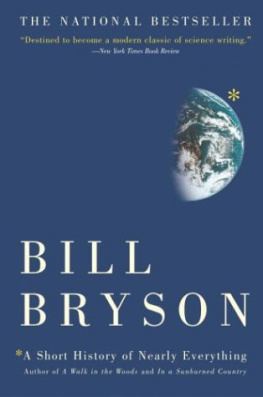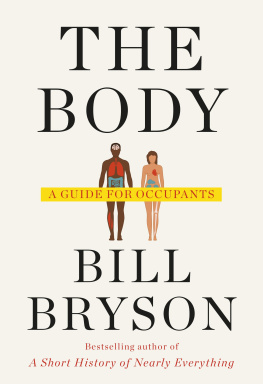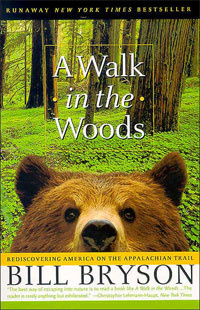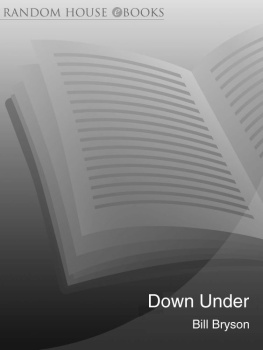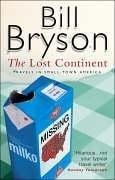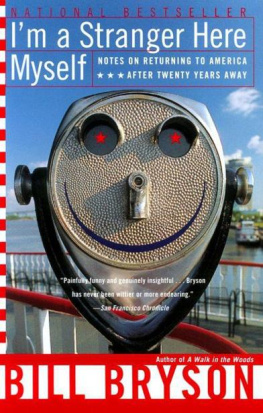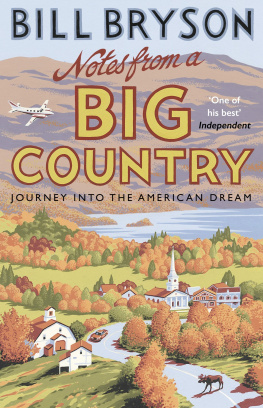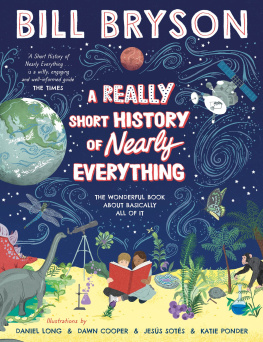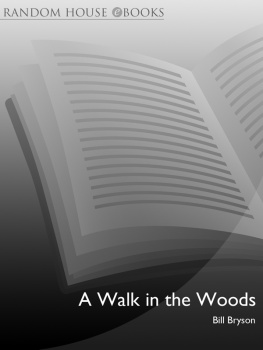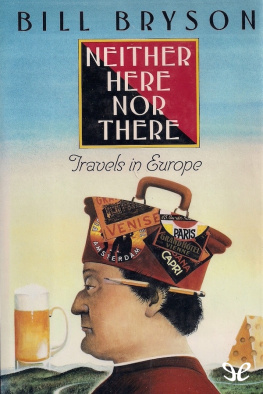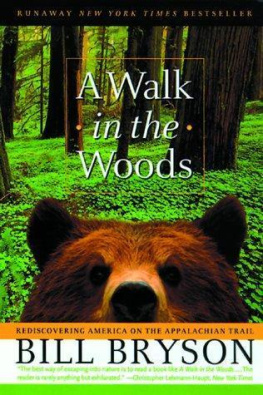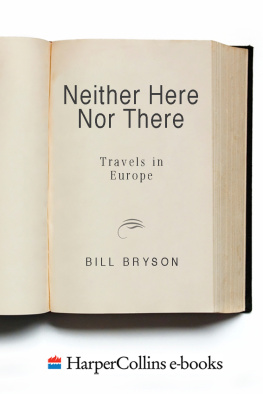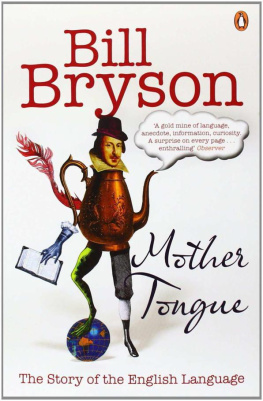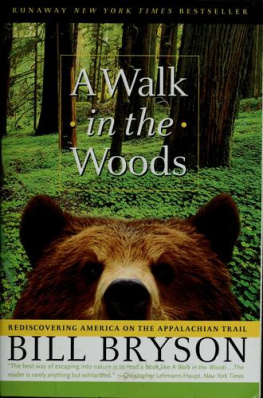A Short History of Nearly Everything
A Short History of Nearly Everything
A Short History of Nearly Everything
by Bryson, Bill
The physicist Leo Szilard once announced to his friend Hans Bethe
that he was thinking of keeping a diary: I dont intend to publish. I
am merely going to record the facts for the information of God.
Dont you think God knows the facts? Bethe asked.
Yes, said Szilard.
He knows the facts, but He does not know this version of the facts.
-Hans Christian von Baeyer,
Taming the Atom
INTRODUCTION
Welcome. And congratulations. I am delighted that you could make it. Getting here wasnt easy, I know. In fact, I suspect it was a little tougher than you realize.
To begin with, for you to be here now trillions of drifting atoms had somehow to assemble in an intricate and intriguingly obliging manner to create you. Its an arrangement so specialized and particular that it has never been tried before and will only exist this once. For the next many years (we hope) these tiny particles will uncomplainingly engage in all the billions of deft, cooperative efforts necessary to keep you intact and let you experience the supremely agreeable but generally underappreciated state known as existence.
Why atoms take this trouble is a bit of a puzzle. Being you is not a gratifying experience at the atomic level. For all their devoted attention, your atoms dont actually care about you-indeed, dont even know that you are there. They dont even know thatthey are there. They are mindless particles, after all, and not even themselves alive. (It is a slightly arresting notion that if you were to pick yourself apart with tweezers, one atom at a time, you would produce a mound of fine atomic dust, none of which had ever been alive but all of which had once been you.) Yet somehow for the period of your existence they will answer to a single overarching impulse: to keep you you.
The bad news is that atoms are fickle and their time of devotion is fleeting-fleeting indeed. Even a long human life adds up to only about 650,000 hours. And when that modest milestone flashes past, or at some other point thereabouts, for reasons unknown your atoms will shut you down, silently disassemble, and go off to be other things. And thats it for you.
Still, you may rejoice that it happens at all. Generally speaking in the universe it doesnt, so far as we can tell. This is decidedly odd because the atoms that so liberally and congenially flock together to form living things on Earth are exactly the same atoms that decline to do it elsewhere. Whatever else it may be, at the level of chemistry life is curiously mundane: carbon, hydrogen, oxygen, and nitrogen, a little calcium, a dash of sulfur, a light dusting of other very ordinary elements-nothing you wouldnt find in any ordinary drugstore-and thats all you need. The only thing special about the atoms that make you is that they make you. That is of course the miracle of life.
Whether or not atoms make life in other corners of the universe, they make plenty else; indeed, they make everything else. Without them there would be no water or air or rocks, no stars and planets, no distant gassy clouds or swirling nebulae or any of the other things that make the universe so usefully material. Atoms are so numerous and necessary that we easily overlook that they neednt actually exist at all. There is no law that requires the universe to fill itself with small particles of matter or to produce light and gravity and the other physical properties on which our existence hinges. There neednt actually be a universe at all. For the longest time there wasnt. There were no atoms and no universe for them to float about in. There was nothing-nothing at all anywhere.
So thank goodness for atoms. But the fact that you have atoms and that they assemble in such a willing manner is only part of what got you here. To be here now, alive in the twenty-first century and smart enough to know it, you also had to be the beneficiary of an extraordinary string of biological good fortune. Survival on Earth is a surprisingly tricky business. Of the billions and billions of species of living thing that have existed since the dawn of time, most-99.99 percent-are no longer around. Life on Earth, you see, is not only brief but dismayingly tenuous. It is a curious feature of our existence that we come from a planet that is very good at promoting life but even better at extinguishing it.
The average species on Earth lasts for only about four million years, so if you wish to be around for billions of years, you must be as fickle as the atoms that made you. You must be prepared to change everything about yourself-shape, size, color, species affiliation, everything-and to do so repeatedly. Thats much easier said than done, because the process of change is random. To get from protoplasmal primordial atomic globule (as the Gilbert and Sullivan song put it) to sentient upright modern human has required you to mutate new traits over and over in a precisely timely manner for an exceedingly long while. So at various periods over the last 3.8 billion years you have abhorred oxygen and then doted on it, grown fins and limbs and jaunty sails, laid eggs, flicked the air with a forked tongue, been sleek, been furry, lived underground, lived in trees, been as big as a deer and as small as a mouse, and a million things more. The tiniest deviation from any of these evolutionary shifts, and you might now be licking algae from cave walls or lolling walrus-like on some stony shore or disgorging air through a blowhole in the top of your head before diving sixty feet for a mouthful of delicious sandworms.
Not only have you been lucky enough to be attached since time immemorial to a favored evolutionary line, but you have also been extremely-make that miraculously-fortunate in your personal ancestry. Consider the fact that for 3.8 billion years, a period of time older than the Earths mountains and rivers and oceans, every one of your forebears on both sides has been attractive enough to find a mate, healthy enough to reproduce, and sufficiently blessed by fate and circumstances to live long enough to do so. Not one of your pertinent ancestors was squashed, devoured, drowned, starved, stranded, stuck fast, untimely wounded, or otherwise deflected from its lifes quest of delivering a tiny charge of genetic material to the right partner at the right moment in order to perpetuate the only possible sequence of hereditary combinations that could result-eventually, astoundingly, and all too briefly-in you.
This is a book about how it happened-in particular how we went from there being nothing at all to there being something, and then how a little of that something turned into us, and also some of what happened in between and since. Thats a great deal to cover, of course, which is why the book is calledA Short History of Nearly Everything , even though it isnt really. It couldnt be. But with luck by the time we finish it will feel as if it is.
My own starting point, for what its worth, was an illustrated science book that I had as a classroom text when I was in fourth or fifth grade. The book was a standard-issue 1950s schoolbookbattered, unloved, grimly hefty-but near the front it had an illustration that just captivated me: a cutaway diagram showing the Earths interior as it would look if you cut into the planet with a large knife and carefully withdrew a wedge representing about a quarter of its bulk.
Its hard to believe that there was ever a time when I had not seen such an illustration before, but evidently I had not for I clearly remember being transfixed. I suspect, in honesty, my initial interest was based on a private image of streams of unsuspecting eastbound motorists in the American plains states plunging over the edge of a sudden 4,000-mile-high cliff running between Central America and the North Pole, but gradually my attention did turn in a more scholarly manner to the scientific import of the drawing and the realization that the Earth consisted of discrete layers, ending in the center with a glowing sphere of iron and nickel, which was as hot as the surface of the Sun, according to the caption, and I remember thinking with real wonder: How do they know that?

